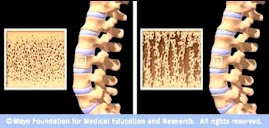http://www.webmd.com/vitamins-supplements/ingredientmono-926-vitamin%20b12.aspx?activeingredientid=926&activeingredientname=vitamin+b12
WebMD rates vitamin B12 as likely effective for high level of homocysteine in the blood (Hyperhomocysteinemia). “Taking vitamin B12 by mouth, along with folic acid and sometimes pyridoxine (vitamin B6), can lower blood levels of homocysteine.”
High levels of homocysteine in the blood are associated with increased risk of fractures, cardiovascular disease and dementia.
WebMD writes that there is insufficient evidence for using vitamin B12 for canker sores. Here is a quote: “Early research shows that taking vitamin B12 1000 mcg under the tongue (sublingually) might help reduce the number of canker sore outbreaks, the duration of outbreaks, and pain caused by the canker sores.”
Aphthous stomatitis, or recurrent aphthous ulcers (RAUs) or canker sores, are among the most common oral mucosal lesions physicians and dentists observe. See “Vitamin B12 for the treatment of recurrent aphthous stomatitis.” This study had success with sublingual vitamin B12 tablets at a dose of 1000 mcg.
http://www.ncbi.nlm.nih.gov/pubmed/20023621
I can tell you that vitamin B12 does work for canker sores and will not just reduce the number and duration of outbreaks, but stop the outbreaks altogether IF you take a sufficient amount of the right supplement. I recommend Solgar sublingual methylcobalamin (vitamin B12), 5000 mcg daily. Methylcobalamin is the active coenzyme form of B12. My husband used to be plagued with canker sores but hasn’t gotten them since using this product. When he used 5000 mcg vitamin B12, but not the methylcobalamin form, he still got an occasional sore.
WebMD rates vitamin B12 as likely effective for high level of homocysteine in the blood (Hyperhomocysteinemia). “Taking vitamin B12 by mouth, along with folic acid and sometimes pyridoxine (vitamin B6), can lower blood levels of homocysteine.”
High levels of homocysteine in the blood are associated with increased risk of fractures, cardiovascular disease and dementia.
WebMD writes that there is insufficient evidence for using vitamin B12 for canker sores. Here is a quote: “Early research shows that taking vitamin B12 1000 mcg under the tongue (sublingually) might help reduce the number of canker sore outbreaks, the duration of outbreaks, and pain caused by the canker sores.”
Aphthous stomatitis, or recurrent aphthous ulcers (RAUs) or canker sores, are among the most common oral mucosal lesions physicians and dentists observe. See “Vitamin B12 for the treatment of recurrent aphthous stomatitis.” This study had success with sublingual vitamin B12 tablets at a dose of 1000 mcg.
http://www.ncbi.nlm.nih.gov/pubmed/20023621
I can tell you that vitamin B12 does work for canker sores and will not just reduce the number and duration of outbreaks, but stop the outbreaks altogether IF you take a sufficient amount of the right supplement. I recommend Solgar sublingual methylcobalamin (vitamin B12), 5000 mcg daily. Methylcobalamin is the active coenzyme form of B12. My husband used to be plagued with canker sores but hasn’t gotten them since using this product. When he used 5000 mcg vitamin B12, but not the methylcobalamin form, he still got an occasional sore.




No comments:
Post a Comment